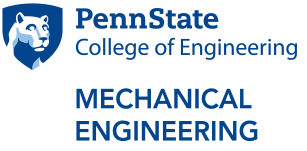Journal Articles
- Logan Larose, Jude T Anderson and David M Williams, 2025, "Spline-based solution transfer with potential applications for space–time methods in 2D+ t", Computer Methods in Applied Mechanics and Engineering
- David M Williams and Nilima Nigam, 2024, "Conforming finite element function spaces in four dimensions, part II: The pentatope and tetrahedral prism", Computers and Mathematics with Applications
- Nilima Nigam and David M Williams, 2024, "Conforming finite element function spaces in four dimensions, part I: Foundational principles and the tesseract", Computers and Mathematics with Applications
- David M Williams and Qingguo Hong, 2024, "Generalized Korn's inequalities for piecewise H1 and H2 vector fields", Mathematics of Computation
- Jude T Anderson, David M Williams and Andrew Corrigan, 2023, "Surface and hypersurface meshing techniques for space-time finite element methods", Computer-Aided Design, 163, pp. 1-16
- Edward A Miller, Xi Chen and David M Williams, 2022, "Versatile mixed methods for non-isothermal incompressible flows", Computers and Mathematics with Applications, 125, (1), pp. 150-175
- Miroslav Petrov, Todor Todorov, Gage S Walters, David M Williams and Freddie D Witherden, 2022, "Enabling four-dimensional conformal hybrid meshing with cubic pyramids", Numerical Algorithms, pp. 1-39
- Cory V Frontin, Gage S Walters, Freddie D Witherden, Carl W Lee, David M Williams and David L Darmofal, 2021, "Foundations of space-time finite element methods: polytopes, interpolation, and integration", Applied Numerical Mathematics, 166, pp. 92-113
- Karthik Ganeshan and David M Williams, 2021, "An implicit discontinuous Galerkin finite element discrete Boltzmann method for high Knudsen number flows", Physics of Fluids, 33, (3), pp. 032019
- David M Williams and Gage S Walters, 2020, "Integration bounds for the regular simplex in n-dimensional space", International Journal of Mathematical Education in Science and Technology, 1, pp. 1-16
- Xi Chen and David Michael Williams, 2020, "Versatile mixed methods for the incompressible Navier-Stokes equations", Computers and Mathematics with Applications, 80, pp. 1555-1577
- David M Williams, Cory V Frontin, Edward A Miller and David L Darmofal, 2020, "A family of symmetric, optimized quadrature rules for pentatopes", Computers and Mathematics with Applications, 80, pp. 1405-1420
- David Michael Williams, 2019, "An analysis of discontinuous Galerkin methods for the compressible Euler equations: entropy and L2 stability", Numerische Mathematik, 141, pp. 1079-1120
- Andrew S Wixom, Gage S Walters, Sheri L Martinelli and David Michael Williams, 2019, "Generalized polynomial chaos with optimized quadrature applied to a turbulent boundary layer forced plate", Journal of Computational and Nonlinear Dynamics, 14, pp. 1-9
- David Michael Williams, 2018, "An entropy stable, hybridizable discontinuous Galerkin method for the compressible Navier-Stokes equations", Mathematics of Computation, 87, pp. 95-121
- David Michael Williams, Dmitry S Kamenetskiy and Philippe R Spalart, 2015, "On stagnation pressure increases in calorically perfect, ideal gases", International Journal of Heat and Fluid Flow, 58, pp. 40-53
- David Michael Williams, L. Shunn and A. Jameson, 2014, "Symmetric quadrature rules for simplexes based on sphere close packed lattice arrangements", Journal of Computational and Applied Mathematics, 266, pp. 18-38
- David Michael Williams and A. Jameson, 2014, "Energy stable flux reconstruction schemes for advection–diffusion problems on tetrahedra", Journal of Scientific Computing, 59, pp. 721-759
- P. Castonguay, David Michael Williams, P. E. Vincent and A. Jameson, 2013, "Energy stable flux reconstruction schemes for advection–diffusion problems", Computer Methods in Applied Mechanics and Engineering, 267, pp. 400-417
- David Michael Williams, P. Castonguay, P. E. Vincent and A. Jameson, 2013, "Energy stable flux reconstruction schemes for advection–diffusion problems on triangles", Journal of Computational Physics, 250, pp. 53-76


